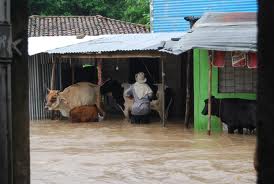The following post provides a list of the CDL’s latest policy reports and scholarly articles published in 2013:
Scholarly Articles
2013 “No Talk, but Some Walk: The Obama Administration’s First Term Rhetoric on Climate Change and its International Climate Budget Commitments.” Graciela Kincaid and J. Timmons Roberts. Global Environmental Politics 13(4) November, 2013. Available online here.
2013 “The impact of climate change on human security in Latin America and the Caribbean” Úrsula Oswald Spring, Hans Günter Brauch, Guy Edwards and J. Timmons Roberts in Climate change and Human Security Handbook, Michael Redclift and Marco Grasso (eds.) Cheltenham: Edward Elgar. More information available here.







